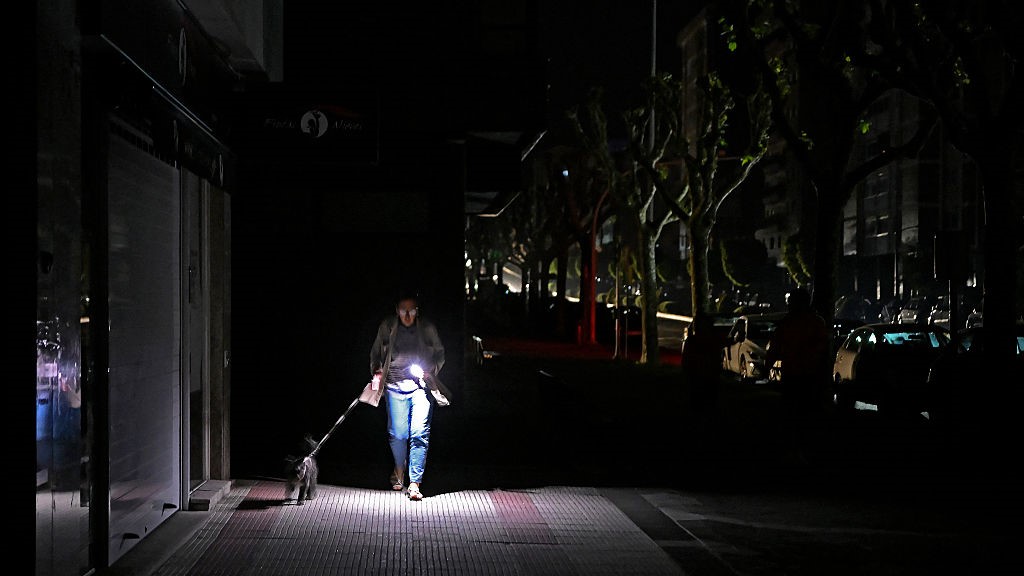Crippling Power Outage in Spain Likely Caused by Generation Loss
(Bloomberg) -- Spain’s state-backed operator of electricity transmission lines said that one of Europe’s worst blackouts in years, which knocked out power to much of the Iberian peninsula on Monday, was most likely caused by losses in generation.
A cyberattack has been ruled out as a possible cause, said Red Electrica executive Eduardo Prieto, without providing further details. Spain’s power grid is typically robust and blackouts are very infrequent.
Spain and Portugal began returning to business as usual on Tuesday in the wake of the outage. The Spanish grid operator said around 11:15 a.m. that the country’s power system was back to normal. By then, urban trains in Madrid were slowly resuming regular service, while they remained suspended in Barcelona and other parts of the region of Catalonia over ongoing concerns about power instability, state-owned operator Renfe said.
Metro lines in most of Madrid and Barcelona have been running normally since Tuesday morning.

In Portugal, the government said power has been fully restored and grid operator REN described the network as “perfectly stabilized.” Electricity had already returned to much of greater Lisbon by Monday night. The metro service resumed normal service on Tuesday morning and trains were running.
As the search for answers continues, Spanish Prime Minister Pedro Sanchez will hold a weekly cabinet meeting on Tuesday, and King Felipe will join a meeting of the country’s national security council.
Spain was left reeling by the sudden outage, which caused massive disruption to public transport, telecommunications and airports. Phone services were operating again in most of the country on Tuesday.

About 15 gigawatts of power vanished from the grid in a matter of seconds right before the blackout at around 12:35 p.m., Sanchez said — equal to about 60% of national demand.
At around the time of the incident, Portugal was importing electricity from Spain, according to Joao Conceicao, a board member at the nation’s grid operator.
By early Tuesday, road traffic was flowing normally again in central Madrid, with traffic lights functioning and commuters heading to work. It was a stark contrast to the previous evening, when subway and train shutdowns had prompted people to crowd the streets.
A collapse on this scale is highly unusual in Europe and exposes the fragility of its power grid at a time of increasing reliance on renewable energy, which is more unstable than traditional sources.
Spain, which has been a leader in the rollout of solar and wind, may face questions over its decision to decommission nuclear plants, which currently contribute 20% of its power mix.

The country is also set to close its last coal-fueled thermoelectric unit this year in favor of renewable energy, backed up by gas plants.
The power failure could inflict an immediate hit on Spain of about 0.5% of quarterly gross domestic product, according to Ana Andrade, an economist for Bloomberg Economics. Some of that would likely be made up in coming days and weeks as energy supply is restored.
“The big picture for Spain remains one of economic outperformance, with strong underlying growth momentum and limited direct exposure to US demand as the trade war continues,” she said in a note.
The Spanish stock market traded normally Tuesday, though it unperformed European peers. Trading operated without disruptions on Monday.
Monday’s outage is reminiscent of a massive power blackout that swept several European countries in July 2021, leaving millions without electricity for hours. Authorities cited a combination of factors then as possible causes, including extreme weather conditions and technical failures.
Railways were among the most affected Monday in Spain, with state security personnel deployed to assist some 35,000 passengers trapped in more than 100 trains, Sanchez said.
©2025 Bloomberg L.P.




